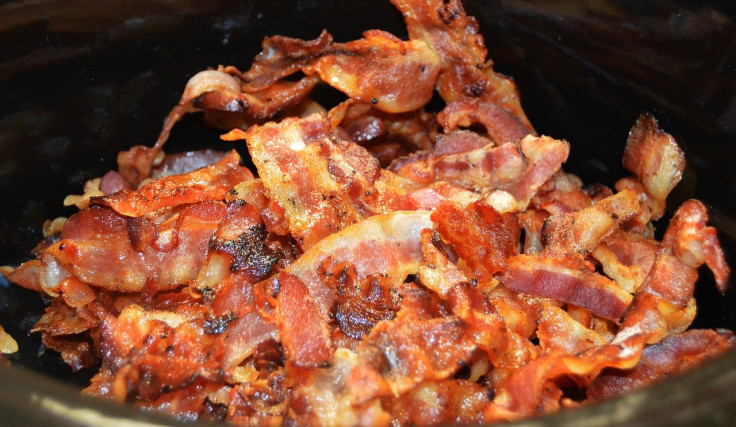Type 2 Diabetes: Additives In Processed Meats May Be Tied To Increased Risks
KEY POINTS
- Nitrites/nitrates can occur naturally in soil and water but are also used as food additives
- Researchers sought whether exposure to them is associated with Type 2 diabetes (T2D) risk
- Their findings suggest exposure to nitrates/nitrites may be tied to higher T2D risks
Bacon lovers may want to pump the brakes on munching on their favorite food. Nitrite/nitrate additives in processed meats may be associated with increased risks for Type 2 diabetes, a new study has found.
For their study, published in PLOS (Public Library of Science) Medicine, the researchers looked at whether there is an association between Type 2 diabetes risk and nitrite/nitrate exposure.
Nitrates and nitrites actually occur naturally in soil and water, the researchers explained, noting that people tend to ingest them from water and other dietary sources. However, they are also used as food additives, especially in processed meats.
"Experimental studies suggested both benefits and harmful effects of nitrites and nitrates exposure on type 2 diabetes (T2D) onset, but epidemiological and clinical data are lacking," they wrote.
There has even been a debate in some countries as to whether nitrates/nitrites should be banned as food additives, they added.
For their work, the researchers used data from the ongoing NutriNet-Santé study. They looked at the information from 104,168 people and differentiated the nitrates/nitrites from food, water and food additives.
Participants aged 15 and older self-reported their medical history, including their diet and lifestyle, according to PLOS. The researchers estimated their nitrate/nitrite exposure, distinguishing whether they originated from food and water — such as the ones naturally occurring in food products and from water contamination — or food additives. They also looked at the participants' total nitrate/nitrite exposure, showing their exposure from food, water and food-additive sources.
By the 7.3-year median follow-up, there were 969 cases of Type 2 diabetes. The researchers found that higher exposure to nitrites was indeed associated with higher risks for Type 2 diabetes in the cohort. Notably, those who had higher exposures to additive-originating nitrites had higher risks than those who weren't exposed to them.
"We found for the first time to our knowledge, an association between additives-originated nitrites and specifically sodium nitrite (e250), with T2D risk," the researchers wrote. "We also found associations between exposure to total dietary nitrites and a higher T2D risk."
This, they say, suggests a "direct association" between nitrites originating from additives and the risks for Type 2 diabetes and also supports previous findings on the associations with total dietary nitrites.
The researchers noted some limitations to the study, such as the participants' differences in dietary patterns and demographics compared to the general population. In addition, they noted that an association does not necessarily mean causation, saying that "causation could not be established from this single observational study."
Other experts also pointed out some caveats, such as that nitrates as an additive are often used in products like bacon, which is something that should be reduced by someone trying to reduce their Type 2 diabetes risk.
That said, the findings of the study contribute to the conversation on nitrates/nitrites and their potential impact on people's health.
"Although they need confirmation by other prospective studies and experimental research, these results provide a new piece of evidence in the context of current discussions regarding the reduction of additives-originated nitrites in the food industry and could support the need for better regulation of soil contamination," the researchers wrote.

© Copyright IBTimes 2024. All rights reserved.






















